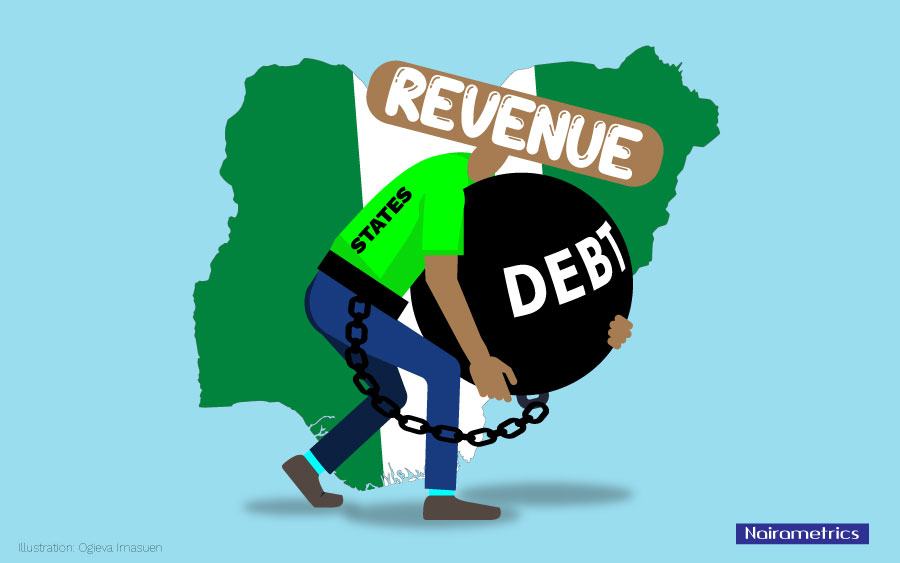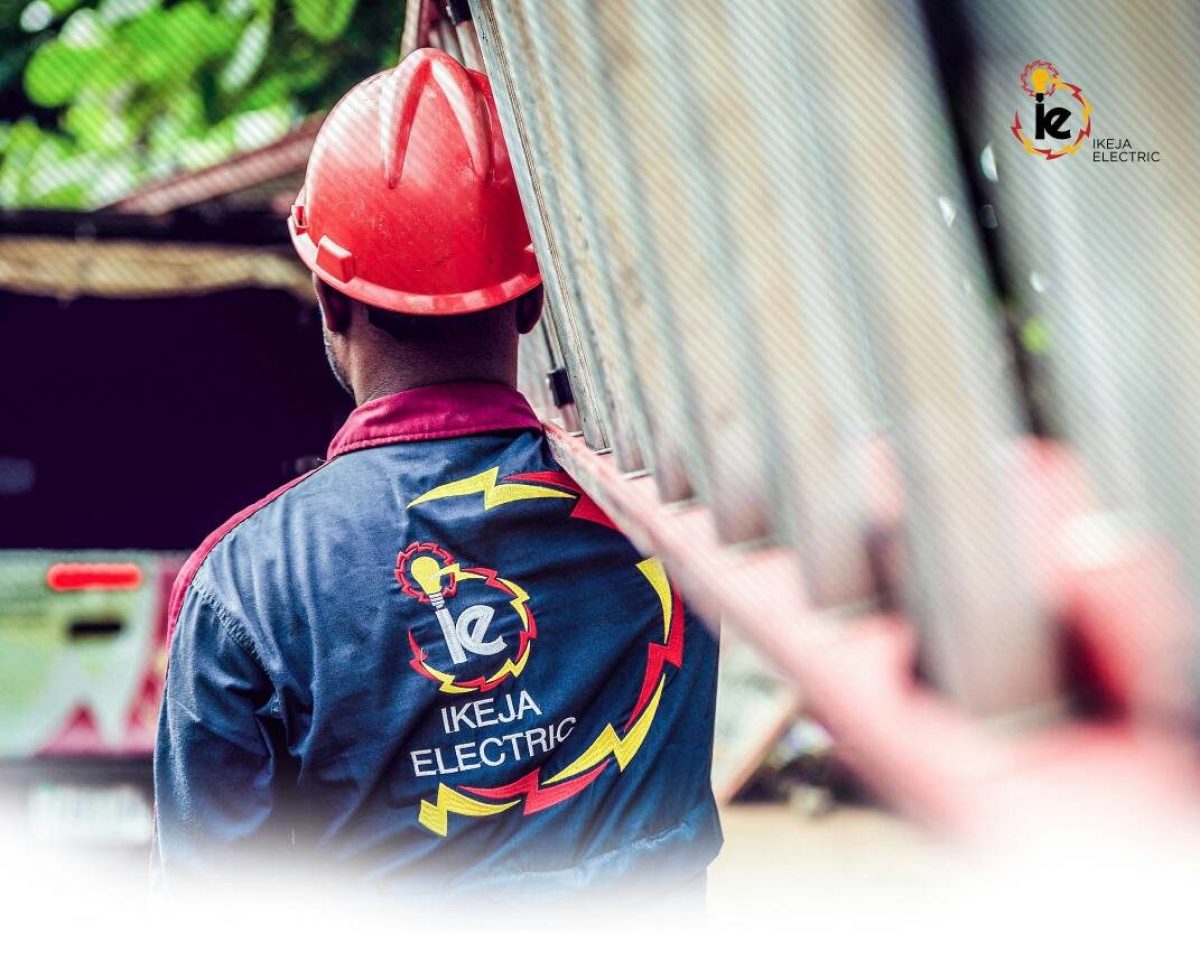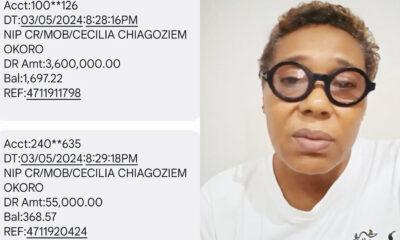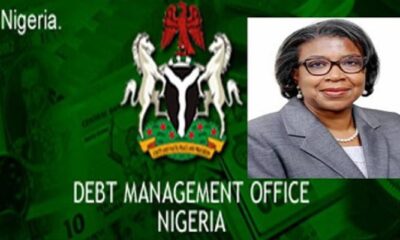Business
Nigeria’s debt rises by N700bn to ₦32.9tn in three months

Nigeria’s total public debt rose to N32.9tn at the end of December 2020, the Debt Management Office has said.
It said this in a statement, indicating an increase of N700bn over the N32.2tn that was reported in September ending of 2020.
The DMO disclosed that the total public debt to the Gross Domestic Product was 21.61 per cent, adding that it was within Nigeria’s new limit of 40 per cent.
“Nigeria’s total public debt as of December 31, 2020 was N32.92tn. The figures include the debt stock of the federal and state governments, as well as, the Federal Capital Territory,” it stated.
It said that after Nigeria exited recession in 2017, the level of new borrowing at the federal level as shown in the annual Appropriation Acts, had been declining to moderate the rate of growth in the public debt stock in order to ensure debt sustainability.
The DMO stated that new borrowing to part finance budget deficits had declined steadily from N2.36tn in 2017 to N2.01tn in 2018, N1.61tn in 2019 and N1.59tn in the first 2020 Appropriation Act.
This trend was reversed in 2020 due to the economic and social impact of the COVID-19 pandemic as new borrowing in the revised 2020 Appropriation Act was N4.2tn.
The DMO stated, “It should be noted though, that apart from the new domestic borrowing of N2.3tn, the other new borrowings were concessional loans from the International Monetary Fund ($3.34bn) and other multilateral and bilateral lenders.
“This incremental borrowing to part-finance the 2020 budget and the additional issuance of promissory notes to settle some arrears of the Federal Government of Nigeria, contributed to the increase in public debt stock.
“New domestic borrowings by state governments also contributed to the growth in the public debt stock.”
In February, the Federal Executive Council at a meeting approved a new Medium-Term Debt Management Strategy for Nigeria, for the period of 2020-2023, when the government disclosed it planned to increase domestic borrowings in its debt profile from 2021 to 2023.
“Borrowing will be from domestic and external sources but a larger proportion of new borrowing will be from domestic sources using long-term instruments while for external borrowing, concessional funding from multilateral and bilateral sources will be prioritised,” it stated.
Business
Forex: FG to delist naira from P2P platforms

Forex: FG to delist naira from P2P platforms
The Federal Government is set to delist the naira from all Peer-to-Peer platforms to reduce the manipulation of the local currency value in the foreign exchange market.
Director General of the Securities and Exchange Commission, Emomotimi Agama, made this known on Monday at a virtual conference with blockchain stakeholders.
The goal of this resolution is to combat manipulation of the value of the local currency in the foreign exchange market.
In past months, the nation’s regulatory bodies have started looking into and closely examining cryptocurrency exchanges.
This is part of a number of regulations to be rolled out in the coming days.
He said, “That is one of the things that must be done to save this space. The delisting of the naira from the P2P platforms to avoid the level of manipulation that is currently happening.
“I want your cooperation in dealing with this as we roll out regulations in the coming days.”
The SEC DG decried how some market players were manipulating the value of the naira.
This, he said, was why the commission was “seeking collaboration and help in making sure that the crypto environment is respected globally”.
Business
Ikeja Electric cuts tariff for Band A customers

Ikeja Electric cuts tariff for Band A customers
The Ikeja Electricity Distribution Company has announced a reduction in the tariff for customers under Band A classification from N225 per kilowatt-hour to N206.80kw/h
This is coming about a month after the Nigerian Electricity Regulatory Commission (NERC) approved an increase in electricity tariff for customers under the Band A category to N225 per kwh — from N66.
The commission has clarified that customers under Band A receive between 20 and 24 hours of electricity supply daily.
Ikeja Electric said in a circular on Monday the cut in the new tariff rate would take effect from May 6, 2024.
Business
Finally, NERC unbundles TCN, creates new system operator

Finally, NERC unbundles TCN, creates new system operator
The Nigerian Electricity Regulatory Commission (NERC) has set up the Nigerian Independent System Operator of Nigeria Limited (NISO) as it unbundles the Transmission Company of Nigeria (TCN).
The transmission leg of the power sector has over the years been seen as weakest link with obsolete equipment.
The unbundling announcement is contained in an Order dated April 30, 2023 and jointly signed by NERC chairman, Sanusi Garba, and vice chairman, Musiliu Oseni.
By this order, the TCN is expected to transfer all market and system operation functions to the new company.
The commission had previously issued transmission service provider (TSP) and system operations (SO) licences to the TCN, in accordance with the Electric Power Sector Reform Act.
The Electricity Act 2023, which came into effect on June 9, provided clearer guidelines for the incorporation and licensing of the independent system operator (ISO), as well as the transfer of assets and liabilities of TCN’s portion of the ISO.
In the circular, the commission ordered the Bureau of Public Enterprises (BPE) to incorporate, unfailingly on May 31, a private company limited by shares under the Companies and Allied Matters Act (CAMA), 2020.
NERC said the company is expected “to carry out the market and system operation functions stipulated in the Electricity Act and the terms and conditions of the system operation licence issued to the TCN.
“The name of the company shall, subject to availability at Corporate Affairs Commission, be the Nigerian Independent System Operator of Nigeria Limited (“NISO”),” NERC said.
Citing the object clause of the NISO’s memorandum of association (MOU) as provided in the Electricity Act, NERC said the company would “hold and manage all assets and liabilities pertaining to market and system operation on behalf of market participants and consumer groups or such stakeholders as the Commission may specify.”
-

 Sports2 days ago
Sports2 days agoRonaldo’s hat-trick leads Al Nassr to 6-0 victory over Al Wehda
-

 International2 days ago
International2 days agoGaza: Thousands rally for hostage deal as ceasefire talks continue
-

 Entertainment2 days ago
Entertainment2 days agoNollywood veteran Shan George weeps as fraudster clears ₦3.6m from her account (VIDEO)
-

 metro1 day ago
metro1 day agoDSS seals Plateau clinic over patient’s death
-

 News3 days ago
News3 days agoDon’t host US, French military bases in Nigeria, northern leaders warn Tinubu
-

 Politics1 day ago
Politics1 day agoPDP: Sule Lamido blames court for mass resignation from party
-

 News2 days ago
News2 days agoUpdated: NNPC blames fuel scarcity on panic buying, hoarding, marketers disagree
-

 metro2 days ago
metro2 days agoEx-FCMB manager sentenced to 121-year imprisonment




















